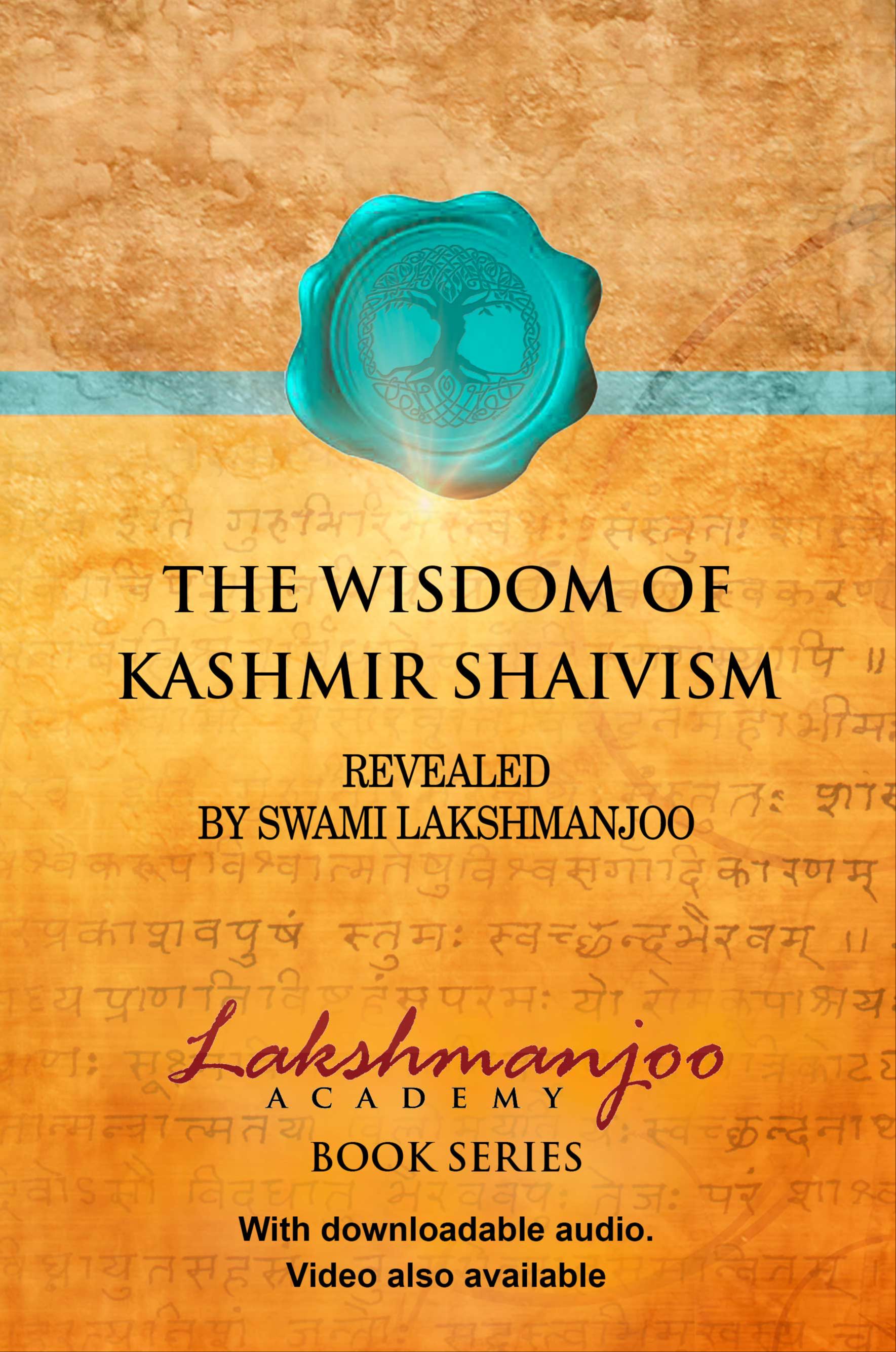
“Love and devotion for God arise from His Grace”.
~Swami Lakshmanjoo
Below is an extract from the Tantraloka 13th Ahnika revealed by Swami Lakshmanjoo…
This is an unpublished text from the Archive of the Lakshmanjoo Academy)
All Content is subject to Copyright © John Hughes.
purāṇe’pi ca tasyaiva
prasādādbhaktiriṣyate /
yayā yānti parāṁ siddhiṁ
tadbhāvagatamānasāḥ // 285 //
In Purāṇa also, in historical tantras also–tantras which propound only histories of the past saints–in those historical śāstras also it is said tasyaiva prasādād bhaktiriṣyate when bhakti, love and devotion for God arise from his grace. It does not rise from your good actions, developing good actions or meditating and weeping, it does not.
ERNIE: Influence.
SWAMIJI: How does it appear?
DENISE: By his grace.
SWAMIJI: By his grace, love for Lord Śiva. Because bhakti is the first sign of śaktipāta. When there is attachment for Lord Śiva that is the sign of grace. Attachment for Lord Śiva, not attachment of Sheik Mohammed Abdullah, or Indira Gandhi, or other gods. There must be complete attachment for Lord Śiva, and that attachment rises only by his grace, not by your effort. Because your effort is always limited, this limited action will never get entry in unlimited sphere of God consciousness.
So there must be unlimited handling, it must be from above.
Yayā yānti parāṁ siddhiṁ tat bhāvagata mānasāḥ and by that handling of Lord Śiva, direct handling of Lord Śiva an individual rises and gets entry in the supreme state of God consciousness.
tasyaiva tu prasādena bhaktirutpadyate nṛiṇām /
This is the reading in Purāṇa; in that Purāṇa this is the reading, tasyaiva tu prasādena bhaktir utpadyate nṛiṇām in individuals the rise of bhakti takes place by His grace, not by your effort. Effort won’t do; by His grace the rise of bhakti will take place. By His grace only; it is eva. He commentates on the line of Purāṇa, himself, Abhinavagupta.
There is eva–eva means only.
What does only indicate–the only word there in Purāṇa–what does this indicate?
evakāreṇa karmādi-
sāpekṣatvaṁ niṣidhyate /
prasādo nirmalībhāva-
stena saṁpūrṇarūpatā // 286 //
ātmanā tena hi śivaḥ
svayaṁ pūrṇaḥ prakāśate /
Evakāreṇa, this only word, which is existing in that Purāṇa; only by his grace bhakti rises, devotion and attachment for Lord Śiva rises, appears.
What is meant by only, this word only?
Eva kāreṇa karmādi sāpekṣa tvaṁ niṣidhyate ‘only’ means not by your effort, not by your conducting manners, conducting discipline, conducting bhakti and fasts and penance; and all those things won’t do anything.
Then how?
DENISE: By his grace, only by his grace.
SWAMIJI: By his grace only; by his only grace if he wills. If he wishes you are free.
DENISE: And he wishes for no reason.
SWAMIJI: No reason, there is no reason.
DENISE: Svātantrya.
SWAMIJI: Just his independent will.
This is what is meant by eva–only; by only his will the grace shines.
What is prasāda, what is grace?
He explains the word grace-prasāda.
Nirmalī bhāva, prasāda is clean surface, clean surface inside and outside. The clean surface is conducted, clean surface is developed inside and outside automatically in one moment.
DENISE: What’s the clean surface, what do you mean?
SWAMIJI: Without bad thoughts, only attachment for Lord Śiva, that is clean surface inside you. When it is not clean surface you crave for going to talkies, going to cinema, going to dinners, and lunches like that.
He has got some śaktipāta . . . he does not like to go for lunch.
DEVOTEES: (laughter)
SWAMIJI: In the same way.
That is nirmalī bhāva, this purification takes place . . . how?
Not by purifying your nature, but by his grace.
Ātmanā tena hi śivaḥ svayaṁ pūrṇaḥ prakāśate by that Lord Śiva appears to him without doing anything, he does not do anything and Lord Śiva is there.
sivībhāvamahāsiddhi-
sparśavandhye tu kutracit // 287 //
vaiṣṇavādau hi yā bhaktir-
nāsau kevalataḥ śivāt /
The supreme power, the attainment of supreme power . . . what is the attainment of [supreme power]? Because another line of Purāṇa is said, [in] Purāṇa [it] is there–yayā yānti parāṁ siddhiṁ–supreme power, by that he attains supreme power . . . what is that supreme power?
Sivī bhāva mahā siddhi sparśa vandhye tu kutracit, vaiṣṇavādau hi yā bhaktir nāsau kevalataḥ śivāt. Sivī bhāva mahā siddhi, the mahā siddhi is, the supreme power is, the existence in the state of Śiva.
DENISE: He becomes like Śiva.
SWAMIJI: He becomes one with Śiva, that is supreme power. Supreme power is not that by which you shower, bless people or curse people. That is not supreme power . . . what is supreme power?
Supreme power is situation in the state of Śiva, that is supreme power. When you reside in the state of Śiva, that is supreme power.
DENISE: Can it be perfect, I mean, as long as there is a body isn’t there some imperfection there?
SWAMIJI: There is some slight imperfection, that too will vanish at the time of leaving this physical frame.
DENISE: So until you leave your body you are like Śiva.
SWAMIJI: You are like Śiva, you are not one with Śiva; yes, you can’t be.
DENISE: You are just like him?
SWAMIJI: Yes, you are just like him; all manners . . . in Kashmiri you call it wattabeta, all wattabeta is just like Śiva.
DENISE: What’s wattabeta?
SWAMIJI: Wattabeta is . . .
BHAGAVAN DAS: All your movements, actions.
SWAMIJI: Movements, actions, all are divine.
(source: Abhinavagupta’s Tantraloka, 13th Ahnika, as revealed by Swami Lakshmanjoo






